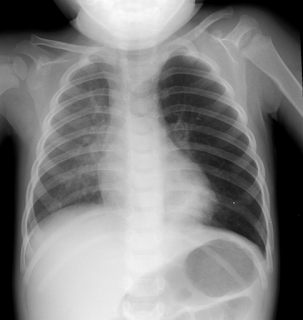Is a Heart Scan the Right Test risks of ct scan
We have heard the stories about a companion who
visits his doctor and has a physician's approval. After two days he bites the
dust of a huge heart assault and you don't see how or why this happened. Your
companion was active, played handball routinely, he was thin, and he ate angle.
His aggregate cholesterol was somewhat high yet his great cholesterol was
great. He was taking a low dosage of medicine to hold his pulse down for about
a year and that was working. What was the deal?
Circulatory strain and cholesterol levels are dependable
gages of how much in danger you are for coronary illness. In any case, the
measure of calcium in your coronary courses and how it is affecting your blood
stream might be a far and away superior method for predicting who is destined
to show at least a bit of kindness assault unless they get taking drugs
treatment.
The issue is that somebody who is asymptomatic, fit
as a fiddle, active and eats well is not sending any red flares that something
isn't right. With no side effects, for example, shortness of breath or
hypertension even with medicine, risks of ct
scan there is no sign that he needs a heart scan,
otherwise called Coronary Calcium Scans.
Heart scans utilize noninvasive methods that
measure the measure of calcium in the dividers of your coronary courses, the
veins that supply your heart with blood. One of the objectives of heart CT for
calcium scoring is to decide whether coronary conduit infection, CAD, is
available and to what extent, regardless of the possibility that there are no
indications. It is a screening for patients with chance factors for CAD however
no clinical manifestations in light of the fact that having calcium in the
dividers of your courses could mean you have coronary conduit infection, a
noteworthy reason for heart assaults. Computer aided design happens when plaque
develops and limits your conduits.
The plaques are made of fat, cholesterol and
calcium. It is the calcium in those plaques that the CT scan detects. The CT
scan acquires information about the nearness, area and extent of calcified
plaque in the coronary corridors. The measure of calcium that is available is
utilized to ascertain a score that,risks of ct scan imagegently when joined with your other wellbeing
information, decides your danger of coronary illness or heart assault. The
aftereffect of this test is known as a coronary calcium score.
Be that as it may, heart scans are as yet
questionable. To start with they are not for everybody.
What' is more, it is as yet indistinct whether
heart scans ought to be utilized generally. Routine utilization of heart scans
on individuals who don't have any side effects of coronary illness is
additionally not prescribed by the American Heart Association or the American
College of Cardiology.
They report that a heart scan is not helpful on the
off chance that you have a low heart assault hazard. For example, on the off
chance that you are more youthful than 55 years of age, have typical
cholesterol and pulse levels and do no't smoke, your heart assault chance is
under 10 percent and a heart scan is not going to tell your doctor something he
doesn't definitely know. Then again in the event that you are at high hazard
since you are more than 65, your cholesterol is high as is your circulatory
strain, the heart scan may not do you much good either on the grounds that you
and your doctor definitely know you are at high hazard.
In the event that then again, you fall somewhere
close to the two and have marginal elevated cholesterol or hypertension you may
discover showing some kindness scan will give you profitable information. You
will have the capacity to tell all the more decisively what your danger of CAD
is.
The hypothesis behind utilizing heart scans is that
the more calcification you have, the more awful your coronary illness. Some
portion of the hypothesis is that notwithstanding having little measures of
calcium may demonstrate you could go ahead to create coronary illness unless
you take forceful measures to stop it, for example, diminishing your
cholesterol and carrying on with a more sound way of life.
Be that as it may, having calcium in your coronary
supply routes does not mean you have coronary illness. What amount do you focus
on the feared false-positive outcomes? That implies there is a blunder on the
scan. For example, on the off chance that you indicate coronary illness your
doctor may ask for more intrusive tests that would not be important in light of
the fact that there was an error.
Then again, the heart scan can indicate you are
free of calcium and that does not mean you totally don't have coronary illness.
The plaques that development in your corridors begin as delicate and just move
toward becoming calcified after some time. So your courses can be stopped up
yet the scan can't detect them.




Comments
Post a Comment